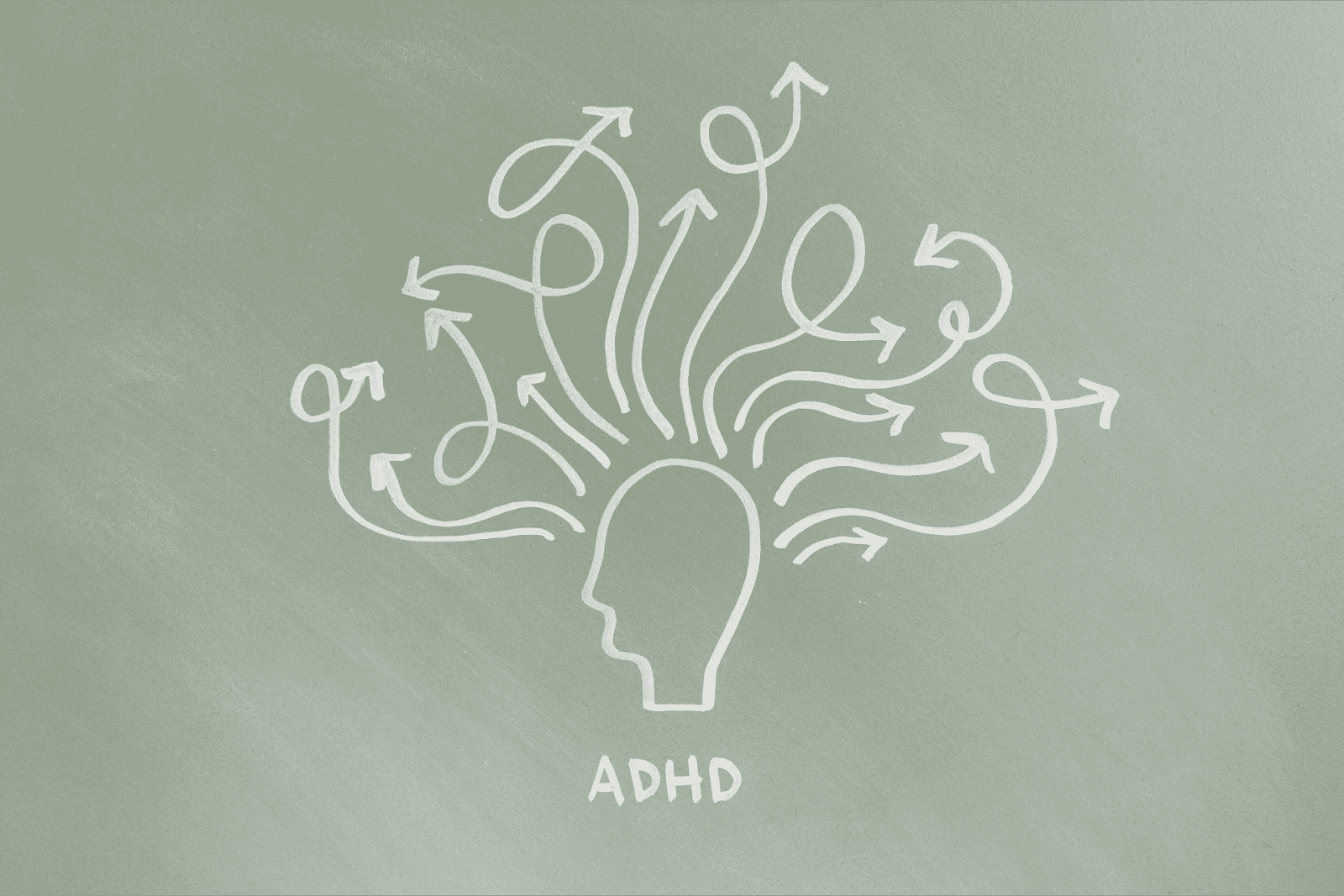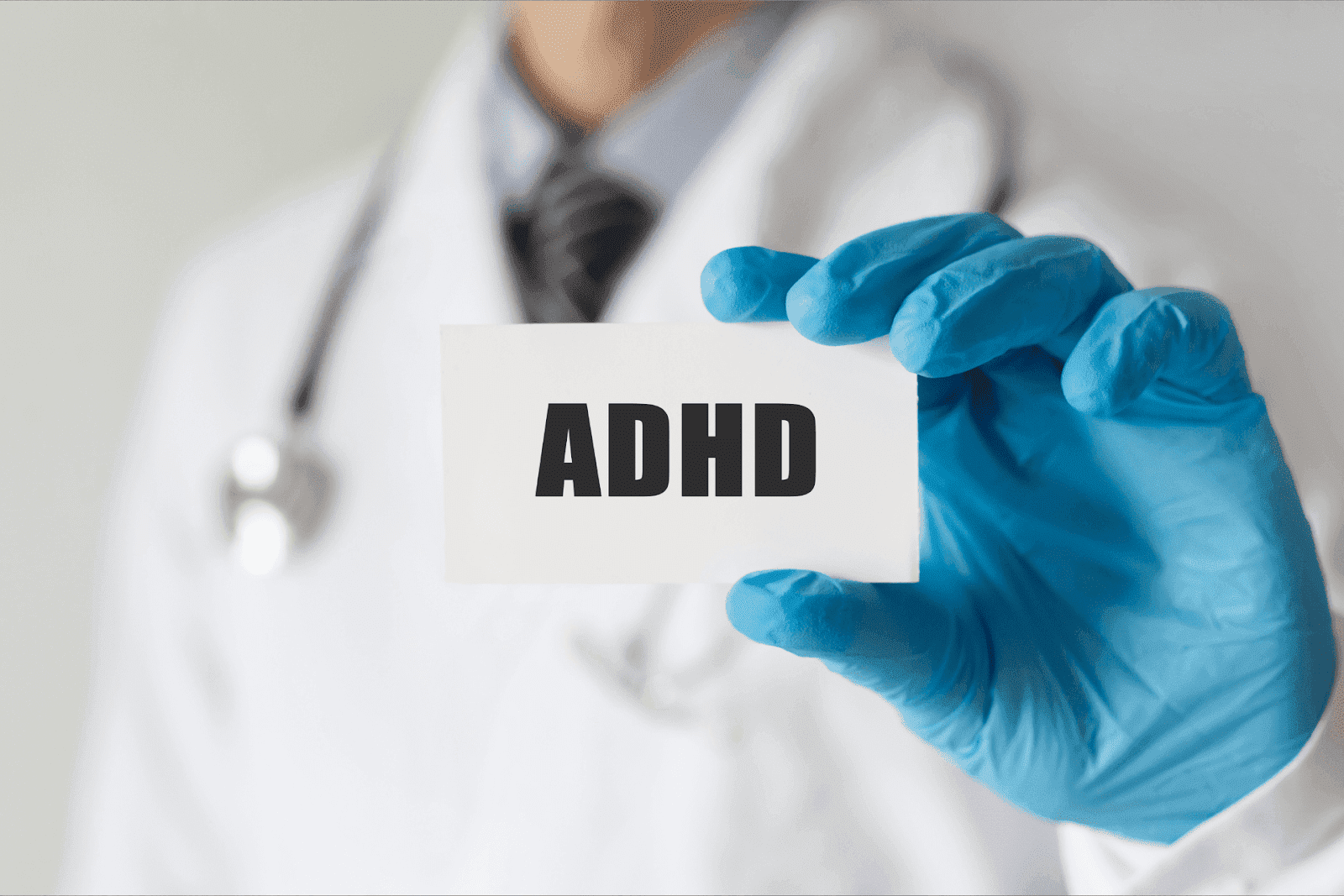Attention Deficit Hyperactivity Disorder (ADHD) is one of the most commonly diagnosed neurodevelopmental disorders, affecting millions of people worldwide. Despite its prevalence, many individuals remain unaware of the symptoms or hesitate to seek a diagnosis. If you suspect you or a loved one may have ADHD, understanding the symptoms is the first crucial step toward getting the right help and support.
In this comprehensive guide, we’ll walk through the key symptoms of ADHD, how it manifests differently across age groups, and the importance of timely diagnosis. Additionally, we’ll discuss how modern telehealth services like Doctronic.ai are revolutionizing access to quality care, making it easier than ever to get an expert opinion from the comfort of your home.
 What Is ADHD? A Brief Overview
What Is ADHD? A Brief Overview
ADHD is a neurodevelopmental disorder characterized by patterns of inattention, hyperactivity, and impulsivity that interfere with daily functioning or development. It is typically diagnosed in childhood, but can persist into adulthood or even be diagnosed for the first time later in life.
The Centers for Disease Control and Prevention (CDC) estimates that approximately 6.1 million children in the United States have been diagnosed with ADHD at some point. However, many adults remain undiagnosed, often because symptoms were overlooked or misattributed during childhood. This lack of awareness can lead to significant challenges in personal, academic, and professional settings, as untreated ADHD can affect relationships, job performance, and overall quality of life.
Understanding the symptoms and how they present is essential for recognizing ADHD in yourself or others. Symptoms can vary widely and often overlap with other conditions, so professional evaluation is key. Common symptoms include difficulty maintaining attention on tasks, excessive fidgeting, and impulsive decision-making. These behaviors can manifest differently depending on the individual, making it crucial to consider the context and severity of the symptoms when seeking a diagnosis.
Moreover, ADHD is often accompanied by co-occurring conditions such as anxiety, depression, and learning disabilities, which can complicate the diagnosis and treatment process. For instance, a child with ADHD may also struggle with anxiety, leading to further challenges in school and social situations. Understanding these complexities can help in developing a comprehensive treatment plan that addresses not only ADHD but also any additional mental health concerns. This multifaceted approach can include behavioral therapy, medication, and lifestyle changes, all tailored to the individual's unique needs.
Recent research has also highlighted the role of genetics and environmental factors in the development of ADHD. Studies suggest that ADHD can run in families, indicating a hereditary component, while factors such as prenatal exposure to tobacco smoke or lead can also increase the risk. This growing body of evidence underscores the importance of early intervention and support, as timely diagnosis and treatment can lead to better outcomes for individuals with ADHD throughout their lives.
Core Symptoms of ADHD
Inattention
Inattention refers to difficulties with maintaining focus, following through on tasks, and organizing activities. People with ADHD may:
Make careless mistakes in schoolwork or at work
Have trouble sustaining attention during tasks or play
Seems not to listen when spoken to directly
Fail to follow through on instructions and fail to finish tasks
Have difficulty organizing tasks and activities
Avoid or dislike tasks that require sustained mental effort
Lose things necessary for tasks or activities
Be easily distracted by extraneous stimuli
Forget daily activities or appointments
These symptoms can lead to challenges in academic, occupational, and social settings, often causing frustration and lowered self-esteem. For instance, a student with ADHD may find it particularly challenging to complete homework assignments, leading to a cycle of incomplete work and negative feedback from teachers. This can create a sense of hopelessness and disengagement from learning. Additionally, adults in the workplace may struggle with project management or meeting deadlines, which can hinder career advancement and lead to stress. The impact of inattention is not limited to the individual; it also affects family dynamics, as parents and siblings may feel the strain of managing the consequences of these symptoms.
Hyperactivity and Impulsivity
Hyperactivity and impulsivity symptoms often manifest as excessive movement, fidgeting, or difficulty remaining still. Typical signs include:
Fidgeting with or tapping hands or feet
Leaving seat in situations where remaining seated is expected
Running or climbing in inappropriate situations (in adults, this may appear as restlessness)
Difficulty playing or engaging quietly in leisure activities
Talking excessively
Blurting out answers before questions have been completed
Difficulty waiting for their turn
Interrupting or intruding on others’ conversations or games
These behaviors can be disruptive and may lead to social difficulties or disciplinary actions if not properly managed. For example, a child who frequently interrupts others may find it hard to make and keep friends, as peers may perceive them as rude or inconsiderate. In adult settings, impulsivity can manifest as hasty decision-making, leading to financial issues or strained relationships. Furthermore, hyperactivity can be misinterpreted as a lack of discipline, causing misunderstandings with authority figures. It is essential to recognize that these behaviors stem from a neurological condition rather than intentional defiance, and appropriate strategies and interventions can significantly improve outcomes for individuals with ADHD.
How ADHD Symptoms Differ by Age
ADHD in Children
In children, ADHD symptoms often become noticeable when they start school. Parents and teachers may observe trouble focusing on lessons, difficulty completing homework, or excessive movement. Children may struggle with peer relationships due to impulsive behaviors or inattentiveness. These challenges can manifest as frequent interruptions during class, an inability to wait their turn during games, or a tendency to blurt out answers before questions are fully asked.
Early identification is vital because untreated ADHD can impact academic performance and social development. However, it is important to distinguish ADHD symptoms from typical childhood behavior, which can sometimes be similarly energetic or inattentive. Parents and educators are encouraged to collaborate closely, sharing observations and strategies to support the child’s learning environment. Engaging children in structured activities, such as sports or arts, can also help channel their energy positively while fostering social skills.
ADHD in Adolescents
During adolescence, ADHD symptoms can evolve. Hyperactivity may decrease, but challenges with inattention and impulsivity often remain. Teenagers might struggle with time management, organization, and maintaining motivation, leading to academic difficulties and strained relationships. As they navigate increased responsibilities, such as preparing for college or entering the workforce, the pressure can exacerbate symptoms, making it crucial for parents and educators to provide guidance and support.
Adolescents with ADHD may also be at higher risk for co-occurring conditions such as anxiety, depression, or substance use disorders. Recognizing symptoms during this stage is essential for providing appropriate support and interventions. Schools can play a pivotal role by offering accommodations, such as extended time on tests or access to organizational tools. Additionally, peer support groups can foster a sense of community and understanding, helping teens feel less isolated in their experiences.
ADHD in Adults
Many adults with ADHD were never diagnosed as children. Symptoms may present differently, often as chronic disorganization, difficulty concentrating at work, restlessness, or impulsive decision-making. Adults may also experience challenges in relationships and managing daily responsibilities. Common issues include forgetting appointments, losing track of important tasks, or feeling overwhelmed by routine chores, which can lead to frustration and low self-esteem.
Because adult ADHD symptoms can overlap with other mental health conditions, professional evaluation is critical. Fortunately, the telehealth platform Doctronic.ai offers convenient access to expert assessments and treatment recommendations without the need for in-person visits. This accessibility is especially beneficial for busy adults who may find it challenging to seek traditional in-person care. Moreover, support groups and coaching can provide valuable resources for adults to develop coping strategies, improve organizational skills, and enhance their overall quality of life.
Why Early and Accurate Diagnosis Matters
Getting an accurate diagnosis of ADHD is crucial for several reasons. First, it helps differentiate ADHD from other conditions that may have similar symptoms, such as anxiety, depression, or learning disabilities. This ensures that individuals receive the most effective treatment tailored to their needs.
Second, early diagnosis allows for timely intervention, which can significantly improve outcomes. Treatments may include behavioral therapy, coaching, medication, or a combination of these approaches. When managed well, individuals with ADHD can thrive academically, professionally, and socially.
Finally, understanding the condition helps reduce stigma and self-blame. Knowing that symptoms stem from a neurodevelopmental disorder rather than personal failings can be empowering and motivating.
 How Telehealth Is Changing ADHD Care
How Telehealth Is Changing ADHD Care
Accessing quality ADHD care traditionally required in-person appointments, which can be time-consuming and limited by geographic location. Today, telehealth services are transforming how people receive medical care, including for ADHD assessments and treatment.
Doctronic.ai stands out as a leader in this space. As the #1 AI Doctor, Doctronic combines cutting-edge artificial intelligence with licensed physicians to provide fast, accurate, and personalized care. Users can start with a free AI doctor visit that synthesizes the latest peer-reviewed medical research to offer symptom evaluation and treatment recommendations.
For those seeking further care, Doctronic offers affordable telehealth video visits with real doctors available 24/7 across all 50 states for under $40. This blend of AI and human expertise ensures patients receive timely, evidence-based care tailored to their unique health profile.
Millions have already benefited from Doctronic’s innovative approach, making it easier than ever to get the help you need for ADHD or any other health concern.
When to Seek Professional Help
If you recognize several of the ADHD symptoms described here in yourself or a loved one, it’s important to seek professional evaluation. ADHD is a complex disorder that requires a thorough assessment, including a detailed history and, often, input from multiple sources such as family members or educators.
Early intervention can make a significant difference in managing symptoms and improving quality of life. Doctronic.ai offers a convenient and accessible way to start this process without the barriers of traditional healthcare.
Smart Support for ADHD Evaluation
Suspecting ADHD can be both a relief and a source of anxiety. Understanding the symptoms is the first step toward clarity and effective management. Whether it’s inattentiveness, hyperactivity, or impulsivity affecting your daily life, know that help is available.
Doctronic.ai makes it easier than ever to access expert care quickly and affordably. With the right diagnosis and treatment plan, individuals with ADHD can lead fulfilling, successful lives.
Remember, you don’t have to navigate this journey alone. Reach out, get evaluated, and take control of your health today.
Ready for a New Approach to ADHD Care?
If you're seeking clarity on ADHD symptoms and looking for a modern, efficient way to manage your health, Doctronic is here to help. Experience the fastest, most personalized medical advice with our AI doctor that's always available, never forgets a detail, and provides the most up-to-date medical information. For those times when you need more, our telehealth video visits connect you with real doctors 24/7 in all 50 states, all at an affordable price. Join over 10 million people who have already discovered the convenience and care at Doctronic. Skip the line. Talk to an AI Doctor Now, for free.



 What Is ADHD? A Brief Overview
What Is ADHD? A Brief Overview How Telehealth Is Changing ADHD Care
How Telehealth Is Changing ADHD Care